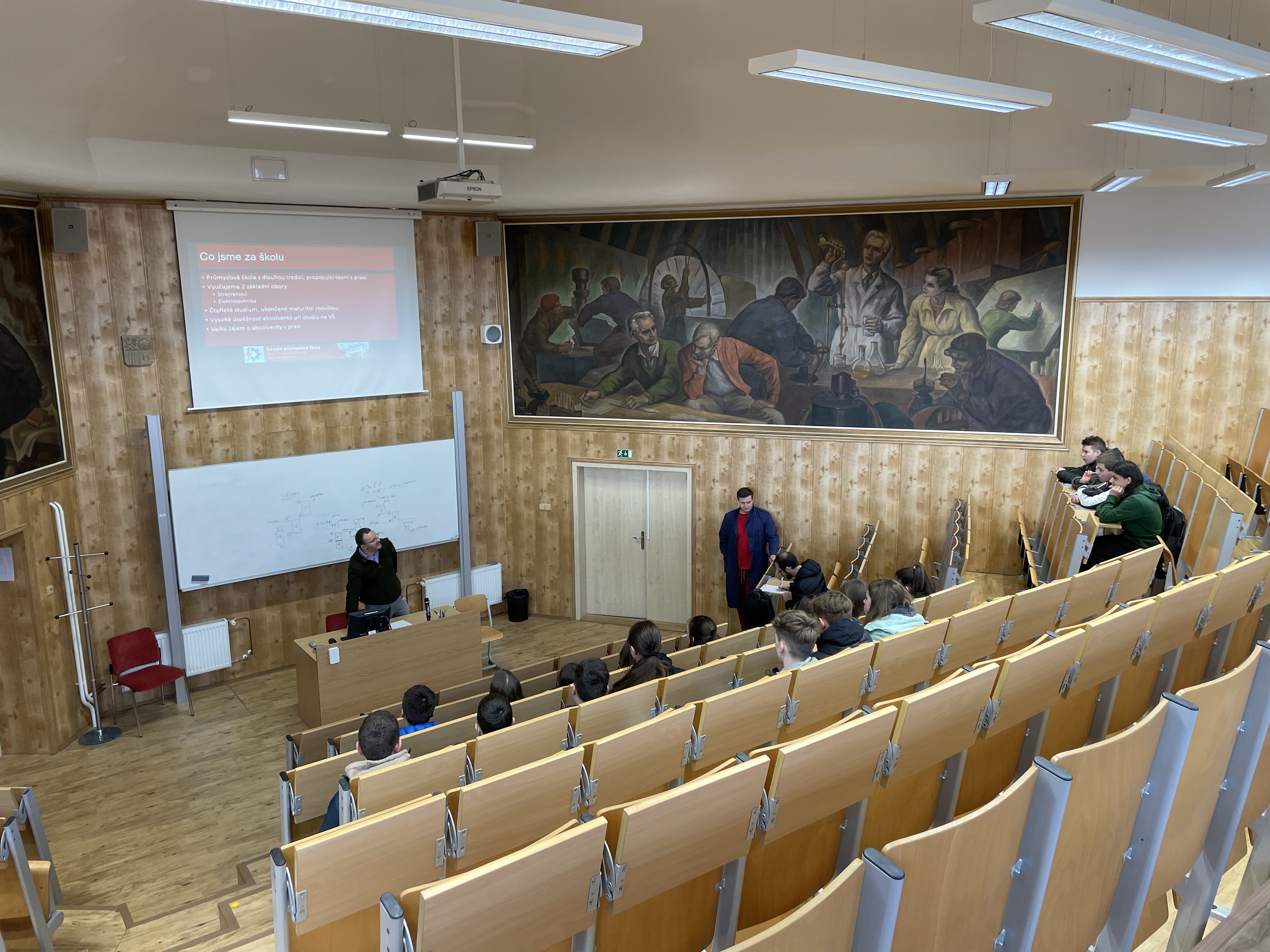Upon arrival, the students were divided into smaller working groups so that they could visit all the individual seminars in turn. Each topic was assigned to one lecturer who presented it both theoretically and practically.
The first station was the PASCO measuring system. The pupils first got acquainted with the system, including the software for measuring with it. This was followed by the theory of gravitational acceleration and acceleration on an inclined plane. Next, the pupils attempted to estimate the value of the acceleration due to gravity using the PASCO trolley - based on measurements of the acceleration of the PASCO trolley on different inclined planes. Finally, they compared their own measured value with the actual value of the acceleration due to gravity.
The next stop was the grinding and cutting of minerals. The aim was to point out the different density and hardness of different working materials according to the principles of the Mohs hardness scale. Each student was also able to try polishing on a polishing machine.
The third topic was intelligent electrical installations. First, the pupils were introduced to what home automation entails, what its advantages are and how it differs from conventional installation. The pupils were introduced to the functions of the Loxone system and the Loxone Config program. We showed the different types of lighting (switched, dimmed, coloured) and then the pupils were able to try out different situations on the training panel.
At the last station, pupils had the opportunity to hear about the history of electrical engineering, power generation and the energy industry. They tried wiring simple circuits and independently built a transformer, which they then tested in practice (e.g. in metal melting).
